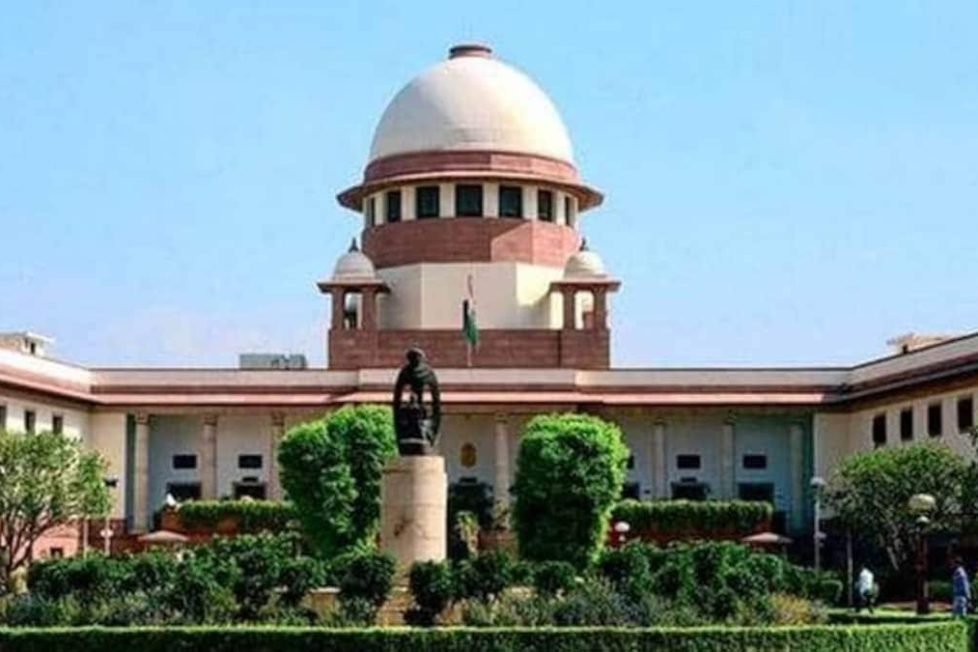‘Rewari culture’ before elections! Supreme Court said- this is a serious issue…


Recently, a political war of words had erupted after PM Narendra Modi criticized the tradition of giving free gifts as ‘Rewari culture’ in elections. Not only this, the matter reached the Supreme Court that the culture of ‘free’ should be banned. The hearing on which took place on Tuesday. The counsel appearing for the Election Commission told the court that the rules relating to free gifts and election promises have been included in the model code of conduct.
The matter of ‘Rewari culture’ during the elections is now in the Supreme Court. Hearing on a petition seeking a ban on giving free things to voters for taking votes has been deferred. On Tuesday, the Chief Justice of India also said that it is a “very serious issue”, besides the CJI asking the central government to take steps to curb the situation.
The counsel appearing for the Election Commission told the court that the rules relating to free gifts and election promises have been included in the model code of conduct, but any law to ban penalizing the practice would have to be enacted by the government. The counsel for the Election Commission said, “There are judgments of the Supreme Court which say that the election manifesto is not a promise. At the same time, Additional Solicitor General KM Natraj also said that the issue will have to be considered by the ECI.
After which the CJI told the Additional Solicitor General that why don’t you give it in writing that we have no authority, let the Election Commission take a call. I am asking whether the Indian government believes that this is a serious issue. If you take a stand then we will decide whether it can be continued or not.
On the other hand, Advocate Upadhyay said that being a citizen of India, I have the right to know how much debt we owe? Let the ECI set a condition. At the same time, CJI NV Ramana also sought his opinion from senior advocate Kapil Sibal sitting in the court for a separate matter. In which he asked Sibal that Sibal is a senior advocate as well as a senior MP and how does he see it?
To which Sibal accepted and said that this is a very serious matter. One cannot expect the Government of India to take any decision due to political issues. However, you can invite the Finance Commission to consider it.
Kapil Sibal suggested to the CJI that the Finance Commission may be included to look into the debt of each state while making the budget allocation and stability of the state. To this the CJI said that Mr. ASG (Additional Solicitor General) please look into it, if the Finance Commission can look into it. In such a situation, the CJI has asked the Additional Solicitor General whether the Finance Commission can consider any step in relation to the loans and promised freebies of the states.
A bench of CJI NV Ramana, Justice Krishna Murari and Justice Hima Kohli has now asked the Additional Solicitor General to seek directions from the central government whether the Finance Commission can suggest any steps on the matter. Upadhyay said that we have given suggestions. This is a serious issue. On this CJI NV Ramana asked that what suggestions have you given on how to control freebies? Do you have any suggestion?
Upadhyay said that about thirty reports of the Law Commission have been submitted. The Election Commission has issued the Election Symbol Order. There are conditions for the recognition of the parties. The Election Commission can impose an additional condition that political parties should not make such promises.
Advocate Upadhyay informed the court that all the Indian states combined have a debt of more than 70 lakh crores. He said that when I filed this petition, the state of Punjab was in debt of 3 lakh crores. The entire population of Punjab is 3 crore. This means that every citizen has a debt of crores! Overall, all the states are in debt of more than 70 lakh crores. There are more than 6 lakh crores in Karnataka.
Advocate Upadhyay argued that we are on our way to being Sri Lanka. Similar freebies were promised. Our economy will collapse. However, the bench exercised caution on this line. The CJI said that this is a very serious issue, so we are listening to it. If there is a debt, the central government will control it. RBI is there. How can states take loans beyond a limit? The hearing in the matter is now expected to be held on August 3, in which the Center will respond to the suggestion to bring in legal hurdles free of cost.
DISCLAIMER: The author is solely responsible for the views expressed in this article. The author carries the responsibility for citing and/or licensing of images utilized within the text.
